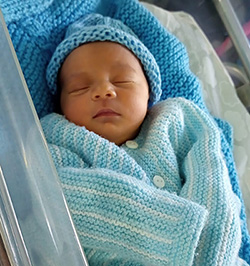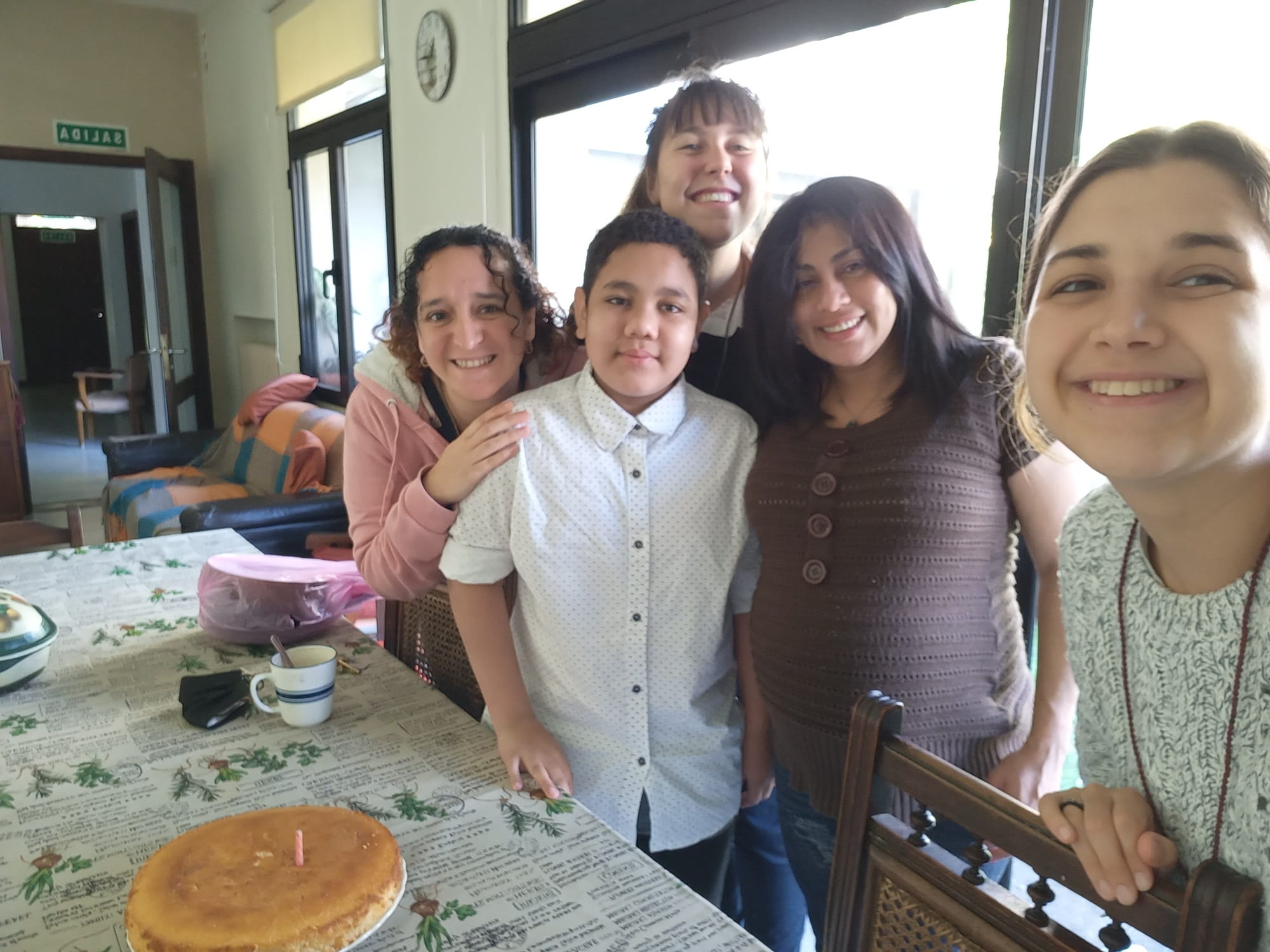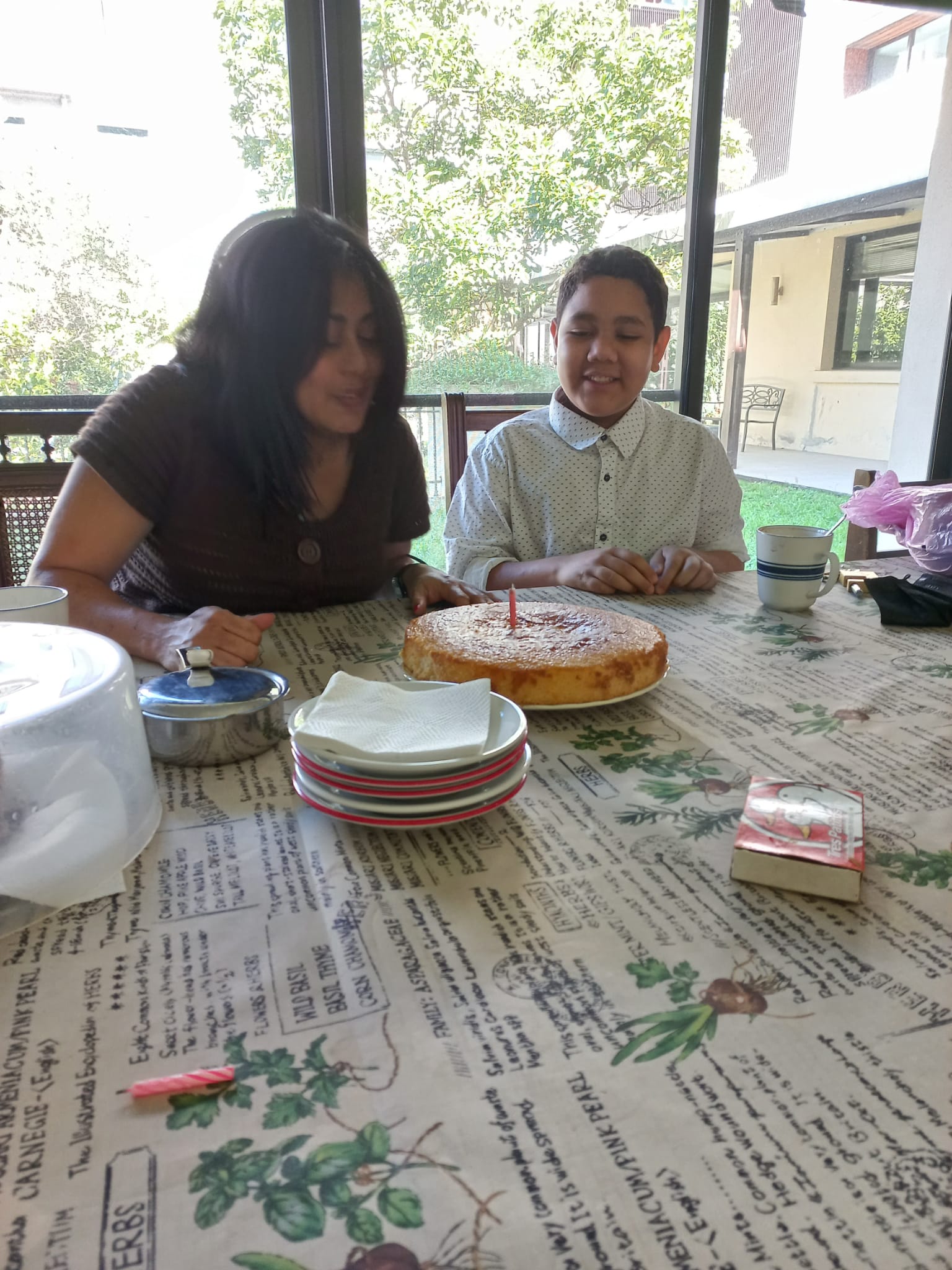
26 Apr GIANLUCA WAS BORN AND NOW HAS URUGUAYAN ID!
On March 25 Lisbeth Carmona and her 11 year old son Eduardo came to our Handmaid community in Montevideo, Uruguay. Lisbeth was pregnant ,and they had travelled from Lima, Peru, arriving in Uruguay via Paysandú, a city in the west of Uruguay. And on Sunday we celebrated the birthday of Lisbeth, a joy to have them with us.
Lisbeth and Eduardo are Venezuelans, and they were living in a hostel in Ciudad Vieja, a
neighborhood in Montevideo where there are many hostels for immigrants whose prices for a room are equal to the cost of renting a studio apartment.
When Lisbeth approached the SJM where one of the Sisters in the community works, we Sisters all agreed that they could be the next immigrants that we would house. Another family of Venezuelans had passed through here that, thank God, had been able to move to a house not far from our community.
Lisbeth’s baby was born on April 4, early in the morning. We went by taxi to the emergency maternity ward of a nearby hospital, and the “doula” who was accompanying her during the last
months of her pregnancy arrived right away to be with her when she gave birth.
In the public hospital the health care as well as social assistance is organized within a framework of assistance from the Ministry of Health and the Ministry of Social Development; it offers the mother and the
baby the necessary health check-ups, some clothing, diapers, food and economic support for at least at the beginning, and some of these are given for a year.
Also this means that Gianluca was discharged from the hospital with a Uruguayan identity card which can be obtained in the civil registry in the same hospital where he was born. Lisbeth and Eduardo will have a longer process that will give them some benefits as immigrants. The Argentine Sisters from our community who arrived in February are still in the process to obtain permanent residence.
Uruguay is considered a “friendly”country in many aspects in regard to legal matters.
In these recent years many Venezuelans and Cubans have arrived, as well as Dominicans and people from other countries of Latin America; therefore they have been adjusting the laws to benefit the immigrants as well as to be able to keep track of immigration. Currently there is a large influx of refugees. In the case of Uruguay, as it is a country with a small population, they not have an infrastructure at the borders to house the people who are coming through. When Lisbeth arrived in Paysandú she tested
covid-positive and had to lodge in a hotel with Eduardo where they quarantined.
Coming to our house, they felt great relief, given that the situation was very vulnerable and we offered them lodging as well as trust and friendship, which will help to become inserted into Uruguayan society. Eduardo still has to transfer to the school in another neighborhood, but everything possible is being done so that he can continue his education in one of the schools a few
blocks away from here. Lisbeth operates a sewing machine very well and soon, when she can leave Gianluca alone for a while, she will join a group of entrepreneurs, which will permit her to become independent.
Our apartment will be available for other immigrants in a few months. We are part of a network of assistance that began together with the Jesuits to deal with the great need for housing for immigrants, and also in conjunction with the Conference of Religious in Uruguay, which also has houses available for this purpose. We join our efforts to those of others in favor of the rights and well-being of the immigrants who arrive in our country.
Inés García, aci



